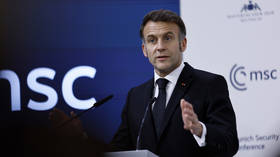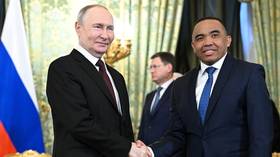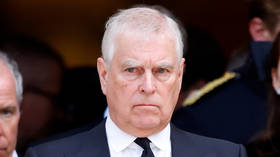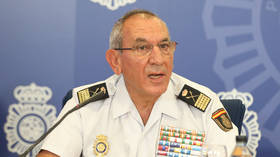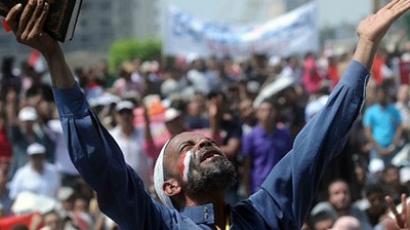Israel pays price for Arab 'freedom' – US AWOL
As freedom aspirations gave birth to liberated Egypt and Tunisia, they also pushed Israel further into isolation. Tel Aviv seems to be the worst-affected by the changes in its neighbors encouraged by its closest ally, the US.
Democracy has a price, and the new Egypt embraced as positive example of change in the Arab world by the West is not the only one paying.“What did the revolution bring us? At least during earlier times there was there was a bit of security but now there is less security on the streets,” said political scientist Dr. Omar Ashour from the Exeter University.Israel has also been left hanging – a slow road to stability in neighboring Egypt, mixed with a massively unpopular Israeli foreign policy makes a dangerous cocktail.“The pace for change towards those aspirations was very slow so you had a lot of frustration on one side and then you had a lot of anger that [was] exacerbated after the killing of five Egyptian soldiers on Egyptian territory by Israeli gunfire,” added Dr. Omar Ashour. The recent attack on the Israeli embassy in Cairo shook up the situation even further. Protesters threw stones and stormed the building as military police stood by and watched for hours. Three people were killed and over 1,000 injured.“This situation can get worse for Israel, not for us. We’re just starting to get stronger. This is not a negative thing for us, but a plus,” a protester in Cairo, Ahmed Aly, told RT. The protester who took down the Israeli flag at the embassy in August was hailed as Egypt’s new superhero “flagman”. A wall was then built to protect the embassy, but was completely destroyed by protesters.Emergency law is now being enforced in Egypt, suffocating its already short-lived freedom. And the US’s strongest ally in the region, Israel, is facing security threats as this new democracy is stuck in a spiral of uncertainty, instability, and sometimes chaos.Benjamin Netanyahu called the incident a near “disaster” being averted. And there might be a lot more work to do to avoid catastrophe in the future.“Israel should worry about it. Look at what's happening in Turkey and Egypt – two very important states in the area which used to have not only peace, but friendship with Israel, are today really at odds with Israel,” explained Dr. Nabeel Shaath, advisor to Palestinian president Mahmoud Abbas.And its number-one friend seems to be having trouble keeping a balance when it comes to promoting Arab democracy and protecting Israel’s security.“It must occur to Netanyahu and others at this point that certainly the Americans are holding the aces and have all the cards up their sleeves. So I think that's something that must weigh heavily on Israel at this point,” stated editor James Corbett.Because when it comes down to it, the US tends to protect one thing in the end.“The basic problem with America and the Western civilization in general and the way they are handling things is it has become too much about interest and not really about humanity or anything else. It is interest, and when that is the main driver, things become messy,” explained independent analyst Ahemd Ebeid.And Egypt could become a mess that Israel will have to clean up.
Phyllis Bennis, director of the Institute for Policy Studies, a US-based peace and human rights group, believes that the US support of the Arab Spring now has a very negative impact on Israel. Its former allies are now turning their backs on the Jewish State.“[The] US once enforced on the Arab dictators and their regimes a certain regional law and very unpopular peace agreements with Israel,” she told RT. “But both are saying to the US ‘We are simply not going to have the kind of close relationship with Israel that we once did.’”“Israel is fundamentally isolated in increasing ways now and has really no friends in the region,” Bennis went on. “And internationally its only reliable friend is the US. In a certain way it is inevitable given the policies that Israel has carried out. The policies of continued occupation, the policies of apartheid, the policies of the siege of Gaza – all these policies have de-legitimized Israel in a way that no country is prepared to back it any longer, except for the US. The US is sort of caught between the strategic interests of re-building ties with these newly-emerging governments in the Arab world".



